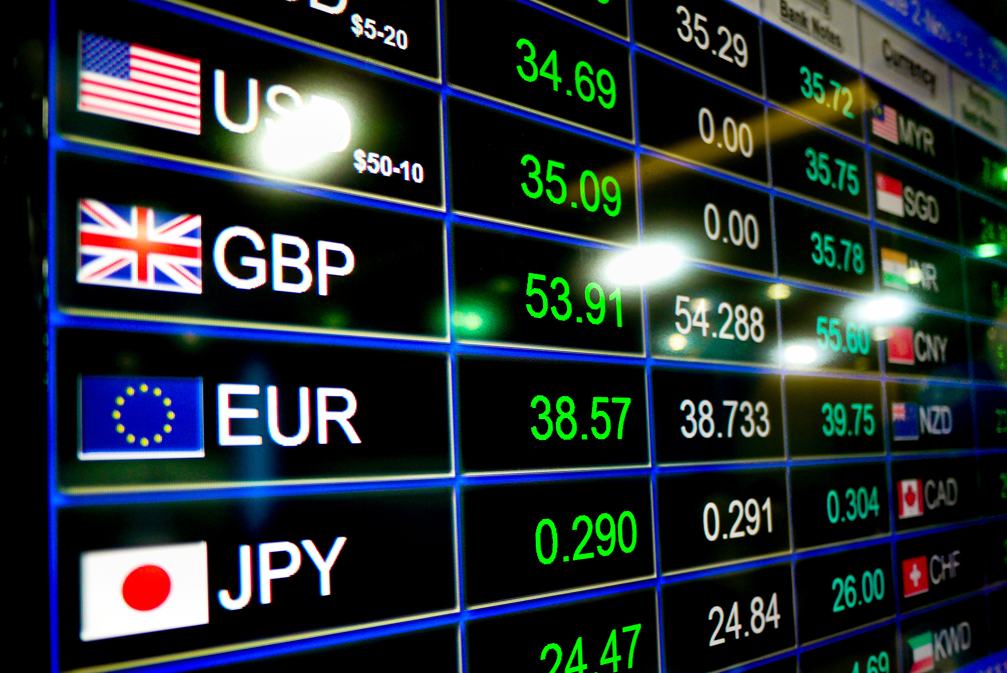Navigating the complex world of currency exchange can often feel like walking through a maze, where each turn presents new challenges and opportunities. Whether you’re itching to jet off on your next adventure, a business owner dealing with cross-border transactions, or simply curious about the financial mechanisms that power your world, understanding the dos and don’ts of currency exchange is essential. This knowledge will safeguard your finances and empower you to make informed decisions in an ever-fluctuating global market.
With that in mind, read on for practical advice and strategic insights on the dos and don’ts to help you understand currency exchange.

Contents
The Essential Dos For Currency Exchange
Here are a few things to consider when navigating currency exchange:
1. Compare Rates And Fees:
Banks, currency exchange bureaus, and online platforms have unique rates and fees. The charges you’ll incur when transacting through banks may differ from those of online platforms or exchange bureaus. It’s, therefore, crucial to compare these costs across multiple providers to ensure you’re getting the best deal possible.
For instance, money exchange in the airport tends to have notoriously high fees and poor exchange rates. At the same time, banks may advertise competitive exchange rates but tack on hidden fees or commissions, increasing the overall cost. On the other hand, dedicated currency exchange bureaus can offer favorable rates but charge higher fixed fees per transaction.
Online services, like reputable peer-to-peer platforms or digital currency exchangers, can sometimes provide the most cost-effective option, especially for more significant transactions. However, it’s wise to thoroughly research their reputation and security guidelines before entrusting them with your funds.
2. Do Your Homework:
When it comes to exchanging currency, doing your homework is crucial. Imagine you’re traveling to a new country and need to exchange dollars for the local currency. Researching the current exchange rates beforehand will give you a good idea of what a fair deal is. Websites like XE.com or apps like Currency Converter provide real-time exchange rates, so you can avoid getting short-changed.
For instance, if you’re an American traveling to Europe, checking exchange rates beforehand can help you understand how much your dollars are worth in euros. With this information at your fingertips, you can negotiate better rates or avoid being short-changed by unscrupulous money changers.
3. Consider Using Credit Cards Or ATMs:
While exchanging cash is a common practice when traveling abroad, it’s worth considering the convenience and potential cost savings of using credit cards or withdrawing local currency from ATMs. These options often provide more favorable exchange rates that’re lower than traditional currency exchange counters.
For example, many credit card issuers offer competitive exchange rates and relatively low fees for international transactions. Using your card for purchases during your trip can eliminate the costs and hassle associated with exchanging cash. Conversely, ATMs allow you to withdraw local currency directly, saving you a significant amount compared to exchange bureaus or kiosks.
Regardless of your preferred methods, it’s always an excellent idea to inform your bank or credit card company about your financial plans in advance. This simple step can prevent unnecessary security blocks or account freezes due to unfamiliar international activity, ensuring a seamless experience during your travels.
4. Beware Of Legal Restrictions:
When traversing international borders, it’s crucial to understand the legal regulations and restrictions surrounding currency exchange. It may seem like a minor consideration, but the legal limits on currency exchange may enable you to manage your cash flow and prevent your business from failing.
Many nations impose strict limits on the total amount you can bring in or out without proper documentation and declarations to customs officials. For instance, some countries may require you to declare currency amounts above a certain threshold to customs officials upon arrival or departure. Failing to do so could result in hefty fines or legal complications, such as allegations of money laundering or tax evasion.
The Essential Don’ts For Currency Exchange
Here are some of the things to avoid when considering currency exchange:
1. Don’t Exchange Money At Airports Or Hotels:
One of the cardinal lines when traveling abroad is to steer clear of exchanging money at airports or hotels. While these options may seem convenient, they may come with exorbitant fees and unfavorable exchange rates, effectively robbing you of your hard-earned cash.
Airport currency exchange counters and hotel front desks are notorious for taking advantage of travelers’ desperation or lack of knowledge. They bank on the assumption that you’ll optimize convenience over cost, charging hefty premiums that can eat into your travel budget.
Instead, it’s advisable to exchange a small amount of currency at the airport or hotel to cover immediate expenses, such as transportation or incidentals upon arrival. For the bulk of your currency exchange needs, explore alternative options that typically offer more competitive rates and lower fees.
2. Don’t Exchange All Your Currency At Once:
When it comes to exchanging currency for your international travels or business, avoid converting all your money at once. Exchanging your entire travel budget in one transaction may lead to poor value or theft. Instead, exchange your currency in smaller, more manageable amounts.
For example, if you plan a two-week trip to Europe and you need to convert USD$2,000, consider breaking it down into smaller amounts, such as USD$500 per week. This way, if the exchange rate improves during your trip, you can take advantage of the better value on subsequent exchanges.
3. Avoid Street Money Changers:
You should also avoid exchanging your currency with street money changers or unofficial currency exchange kiosks. While the convenience of these informal settings may be tempting, they pose significant risks.
The primary concern with street money changers is the lack of regulation and oversight. These individuals or small operations aren’t affiliated with legitimate financial institutions, which means they’re not subject to the same standards and consumer protections. As a result, you may expose yourself to scams, counterfeit currency, or unfavorable exchange rates that can severely erode the value of your money.
For example, a street money changer may offer you a desirable rate, only to later realize that they have given you a stack of counterfeit bills or have somehow short-changed you. Recovering your losses in such situations can be incredibly difficult, if not impossible.
4. Avoid Dynamic Currency Conversion:
When traveling internationally, you may encounter Dynamic Currency Conversion (DCC) when using your credit card. This feature allows you to pay in your home currency instead of the local currency. While it may seem appealing to know the exact costs in your own money, the exchange rate offered through DCC is usually unfavorable.
Therefore, consider paying in the local currency. This ensures you get the best possible exchange rate, as your card issuer will handle the currency conversion using their rates. By avoiding DCC, you can save a significant amount on your purchases abroad.
Conclusion
Effective currency management requires a mix of planning, knowledge, and caution. Ensure you consider the dos and don’ts of currency exchange discussed in this article to ensure your international financial transactions are successful and cost-effective. Whether you’re traveling for pleasure, studying abroad, or engaging in international business, a solid understanding of currency exchange principles can enhance your global experience and protect your financial interests. Remember, research is crucial, and comparing rates and fees can significantly impact your travel budget.


